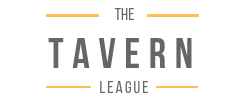KEY LEGISLATIVE VICTORIES
When representing the interests of the on–premises liquor industry before the Colorado legislature. Recent important bills that we played a key role in passing or defeating:
In 2013 SB13-043 was passed into law.
- This legislation allows on-premises licensees to post a warning sign that advised its customers that removing alcohol from the premises is an illegal act. This legislation puts the principal burden on the customer for a carry off violation as long as the licensee has posted the required warning sign posted on its exit doors. Under previous law the licensee could be held strictly responsible for any violation.
In 2014 SB14-054 was passed into law.
- This legislation removed the time limits that controlled how often or when a liquor license holder could offer to pay a fine to avoid a liquor license suspension. Prior to this legislation a licensee could only offer to pay a fine once every two years and only for those violations that resulted in a suspension of 14 days or less. The old law had forced licensing authorities suspend liquor licenses even if they would have been willing to pay a fine.
In 2015 HB15-1202 was passed into law.
- This legislation now permits licensing authorities the option of granting a re-issued license for a late renewal where the licensee’s license has been expired between 91-180 days. Under previous law, if a license had been expired for more than 90 days then the licensee was required to apply for a “new license” that included all of the posting and approval requirements of a new license application. During 2013 there were several instances in which a licensee was required to shut down obtain a new liquor license when they missed the previous 90 day filing limitation.
In 2016 HB16-1151 was passed into law.
- This legislation now requires state and local licensing authorities to consider it a mitigating when assessing penalties for sales to a minor, sales to visibly intoxicated patrons and other violations approved by rule if the license meets the requirements of a “responsible vendor”. To qualify as a “Responsible Vendor” a licensee must insure that it’s resident on-site owner (if applicable) or a manager and all employees involved in the sale or service of alcohol beverages have attended a state approved training program within 90 days of hire.
In 2017 SB17-253 was killed.
- This legislation would have allowed breweries to open multiple brick and mortar sales rooms which would compete directly with the on-premise industry. Manufacturers are a state only license, so local licensing authorities would have had no input or enforcement capabilities over these sales rooms thus threatening the integrity of the on-premise retail tier. The Tavern League led the charge to oppose this potentially devastating bill and was successful in defeating it in its first committee hearing.
In 2018 SB18-243’s harmful amendment was killed.
- This legislation was primarily aimed at impacting the conversion of 3.2% beer to full strength beer on January 1, 2019. However, an amendment was added that would have made it a criminal act for a retailer to accept credit past the statutorily set timeline of thirty days. The amendment did not take into account situations such as billing disputes. The Tavern League was able to strip this amendment from the bill and keep it off. SB-243 was signed into law without this extremely harmful amendment.
Key Regulatory Victories and Initiatives
When representing the interests of the on –premises liquor industry in rulemaking and other matters before the Colorado Liquor Enforcement Division. What we have recently accomplished:
- In 2014 we helped modify Regulation 47-605, which governs the state’s “Responsible Vendor Training Standards”. These standards were changed to reduce the minimum amount of time required in these programs from 4 to 2 hours. The regulation also increased from 2 years to 3 years the time period of certification. Re-certification requirements were also modified to allow a shorted training program and no requirement for passing a written test on re-certification. The Tavern League provides free initial and re-certification training programs for its members.
- In 2014 and 2015 we represented our members in the Division’s Industry work group process that included the adoption of a liquor law penalty matrix that provided for set penalty guidelines for common liquor law violations.
